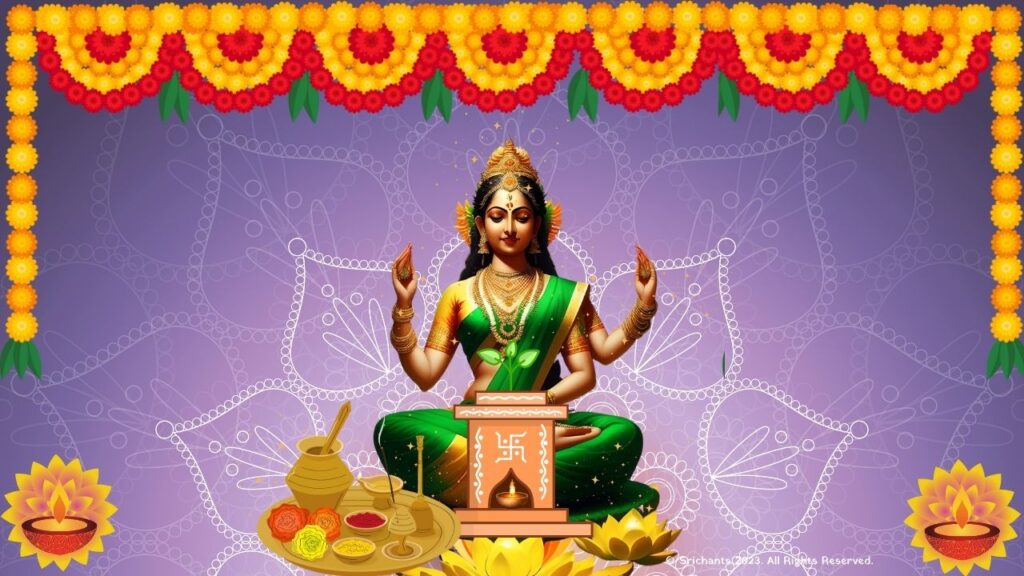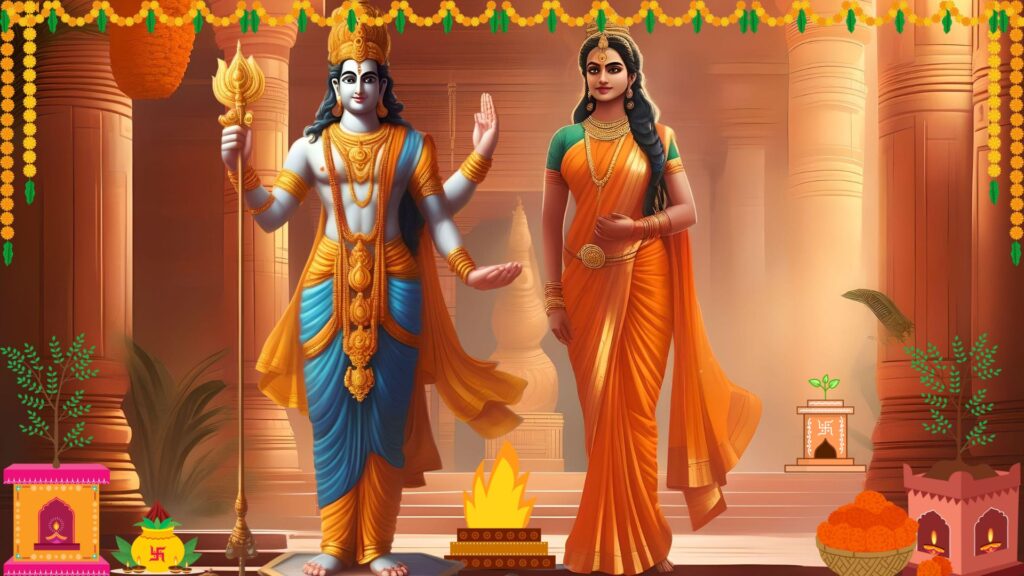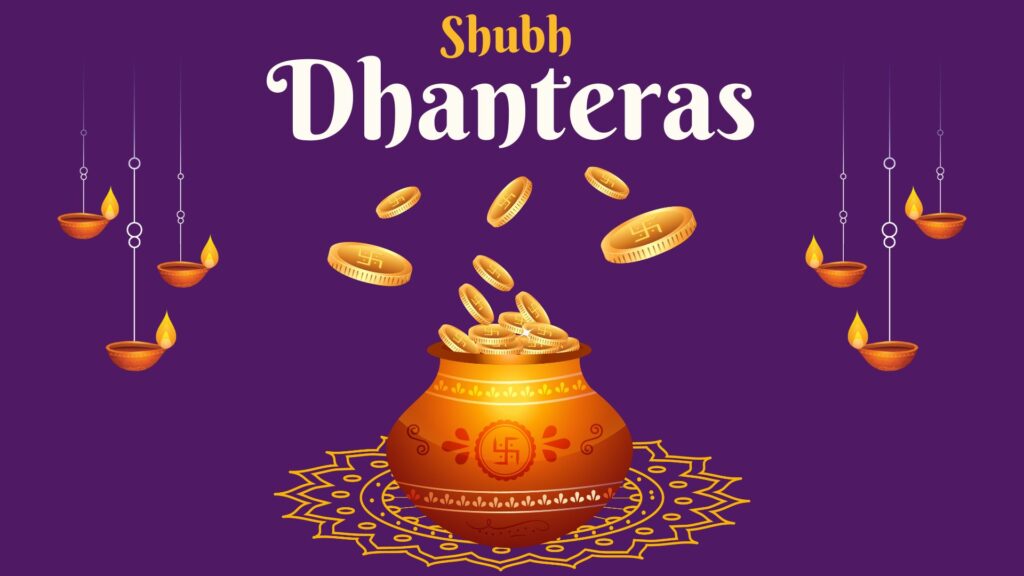Tulsi Pujan Diwas: Celebrating the Sacredness of the Holy Basil Plant
In Hindu traditions, Tulsi Pujan Diwas, alternatively referred to as Tulsi Diwas or Tulsi Vivah, is of profound cultural and spiritual significance. Observed with profound enthusiasm and veneration, this momentous occasion is devoted to paying homage to the sacred Tulsi tree, alternatively referred to as Holy Basil. The commemoration represents the formal union of Tulsi and Lord Vishnu, which symbolizes the divine masculine and feminine energies harmonizing. This extensive article aims to delve into various aspects of the Tulsi Pujan Diwas, including its scientific and medicinal significance, the Tulsi Vivah ceremony, the mythological story that underpins it, the significance of prayer and devotion, and the rituals and observances associated with it.
The Sacredness of Tulsi
Scientifically referred to as Ocimum sanctum, Tulsi is held in high regard within the Hindu faith for its profound medicinal attributes in addition to its profound spiritual significance. Sacred in nature, this plant is regarded as the physical embodiment of Lakshmi, the consort of Lord Vishnu. Tulsi is frequently cultivated in courtyards or specially designated areas within Hindu households on account of its sanctity. The leaves of Tulsi are employed in a multitude of religious ceremonies due to their purported ability to detoxify the environment.
Significance of Tulsi Pujan Diwas
Tulsi Pujan Diwas holds significant cultural significance within Hinduism, as adherents hold the belief that through the veneration of Tulsi Mata, they shall obtain divine blessings from Lord Krishna. Those who pay genuine and devoted homage to Goddess Tulsi are said to receive peace of mind, success, and the realization of their desires. Numerous adherents of Hinduism perform the daily Tulsi puja out of unwavering devotion. December 25, 2024, occurs on the Chaturdashi Tithi of Shukla Paksha during the month of Margashirsha, which is the date of Tulsi Pujan Diwas.
Rituals and Observances
Devotees partake in ornate rituals and ceremonies known as Tulsi Pujan Diwas in order to pay homage to and venerate the goddess Tulsi. Initially, followers commence their day by awakening early, engaging in self-purification through ablutions. Subsequently, they proceed to irrigate the Tulsi plant while igniting a diya nearby that is laden with desi ghee, or clarified butter. As the diya is lit, darkness is vanquished and the presence of divine light is signified. Additionally, the Tulsi plant is embellished by devotees with lights, flowers, and traditional ornaments.
A fundamental observance of Tulsi Pujan Diwas entails performing a seven-time circumambulation of the Tulsi plant. By performing this circumambulation, followers manifest their veneration and solicit the graces of Goddess Tulsi by presenting garlands, flowers, and sweets. By tradition, Lord Shaligram, an embodiment of Lord Vishnu, is venerated adjacent to the Tulsi plant. The plant is deemed deficient in its entirety in the absence of Lord Shaligram.
Devotees also present candies, garlands, and additional embellishments to Goddess Tulsi as an integral component of the rituals. The devotee determines which Shringar items, including sarees, dupattas, bangles, vermillion, and any other silver adornment of their choosing, are displayed. The pinnacle of the religious ceremony consists of the chanting of Aarti, a devotional melody that symbolizes love and devotion to the deity, and the recitation of mantras.
The Mythological Tale of Tulsi Pujan Diwas
The Tulsi Pujan Diwas have their inception in Hindu mythology, wherein an intriguing narrative centers on the sanctity of Tulsi. Pertaining to the demon ruler Jalandhar was a devoted woman named Vrinda, as the legend has it. The source of Jalandhar’s invincibility was the innocence and purity of Vrinda. Lord Vishnu was consulted by the deities when Jalandhar became impregnable as a result of Vrinda’s devotion.
Contrary to expectations, Lord Vishnu compromised Vrinda’s chastity while in concealment, resulting in the demise of Jalandhar. Lord Vishnu, overcome with remorse, metamorphosed Vrinda into the Tulsi plant. A representation of the eternal tie between Lord Vishnu and Tulsi, Lord Vishnu made a solemn vow to wed Tulsi annually on the day of Tulsi Pujan Diwas in order to atone for his transgressions.
The Tulsi Vivah Ceremony
At the core of Tulsi Pujan Diwas lies the Tulsi Vivah ritual, which denotes the celestial matrimonial union of Tulsi and Lord Vishnu. The marriage rituals are executed with utmost devotion and accuracy by devotees. Traditional attire adorns a diminutive murti (image) or idol representing Lord Vishnu, whereas the Tulsi plant is exquisitely embellished in the form of a bride. Invoking the deity couple’s blessings through the recitation of sacred mantras and the presentation of sweets, fruits, and blossoms is the purpose of the ceremony.
Devotees engage in the Tulsi Vivah ceremony by performing a circumambulation around the Tulsi plant, during which they convey reverence and endeavor to attain spiritual grace. It is believed that the ceremony bestows devotees with prosperity, joy, and spiritual health, serving as a symbolic representation of the harmonious union of divine energies.
Prayer and Devotion on Tulsi Pujan Diwas
Devotees observe Tulsi Pujan Diwas by engaging in meditation and prayer in an effort to obtain the blessings of Lord Vishnu and the deity Tulsi. A considerable number of individuals chant hymns and recite religious texts that are devoted to the divine couple, as an act of devotion and appreciation. This day affords individuals the chance to engage in spiritual introspection and self-reflection, thereby cultivating a more profound rapport with the divine.
Devotees earnestly offer their petitions, desiring divine favor and protection for themselves and their cherished ones. Engaging in prayer and devotion during Tulsi Pujan Diwas serves as more than a mere religious ritual; it also provides an opportunity to establish a profound connection with the divine and adopt a comprehensive outlook on life, encompassing one’s physical, mental, and spiritual welfare.
The Scientific and Medicinal Significance of Tulsi
In addition to its profound spiritual and religious significance, Tulsi possesses considerable authority within Ayurveda, the antiquated Indian medical system. Recognized for its therapeutic attributes, tulsi is classified as an adaptogen, which facilitates the body’s adjustment to stress and preservation of equilibrium. As an ingredient in a variety of herbal remedies and infusions, Tulsi leaves promote general health.
Antioxidants and essential compounds with antimicrobial, anti-inflammatory, and immunomodulatory properties are abundant in tulsi. It promotes respiratory health, strengthens the immune system, and mitigates symptoms of stress and anxiety. It is widely postulated that the ingestion of Tulsi leaves or Tulsi tea may yield beneficial effects on one’s general health and state of being.
Conclusion
A celebration that transcends religious boundaries, Tulsi Pujan Diwas embodies the unity of spirituality, nature, and cultural heritage. The festival functions as a tribute to the revered Tulsi plant and underscores the interdependent connection that exists between the natural world and human beings. During the communal observance of Tulsi Pujan Diwas, followers not only partake in religious ceremonies but also adopt a comprehensive outlook on existence that incorporates their spiritual, physical, and mental welfare.
Let us recognize the sanctity of the Tulsi plant and the bounties it bestows upon devotees on this auspicious day. Whoever seeks the divine favor of Lord Vishnu and Goddess Tulsi may experience spiritual development, prosperity, and joy during the Tulsi Pujan Diwas celebrations.
Keywords: Tulsi Pujan Diwas, sacredness of Tulsi, Hindu traditions, worship of Tulsi Mata, significance of Tulsi Diwas, rituals and observances, mythological tale, Tulsi Vivah ceremony, prayer and devotion, scientific and medicinal significance
#Tulsi #Tulsidiwas #Tulsipuja #Tulsipooja #TulsiMata #significanceofTulsiDiwas #mythologicaltale #TulsiVivah prayer #devotion #whatistulsidiwas #significanceoftulsedivas #happytulsidiwas #happytulsiday








